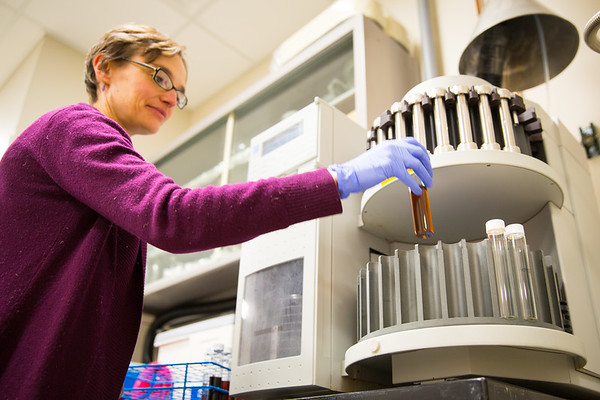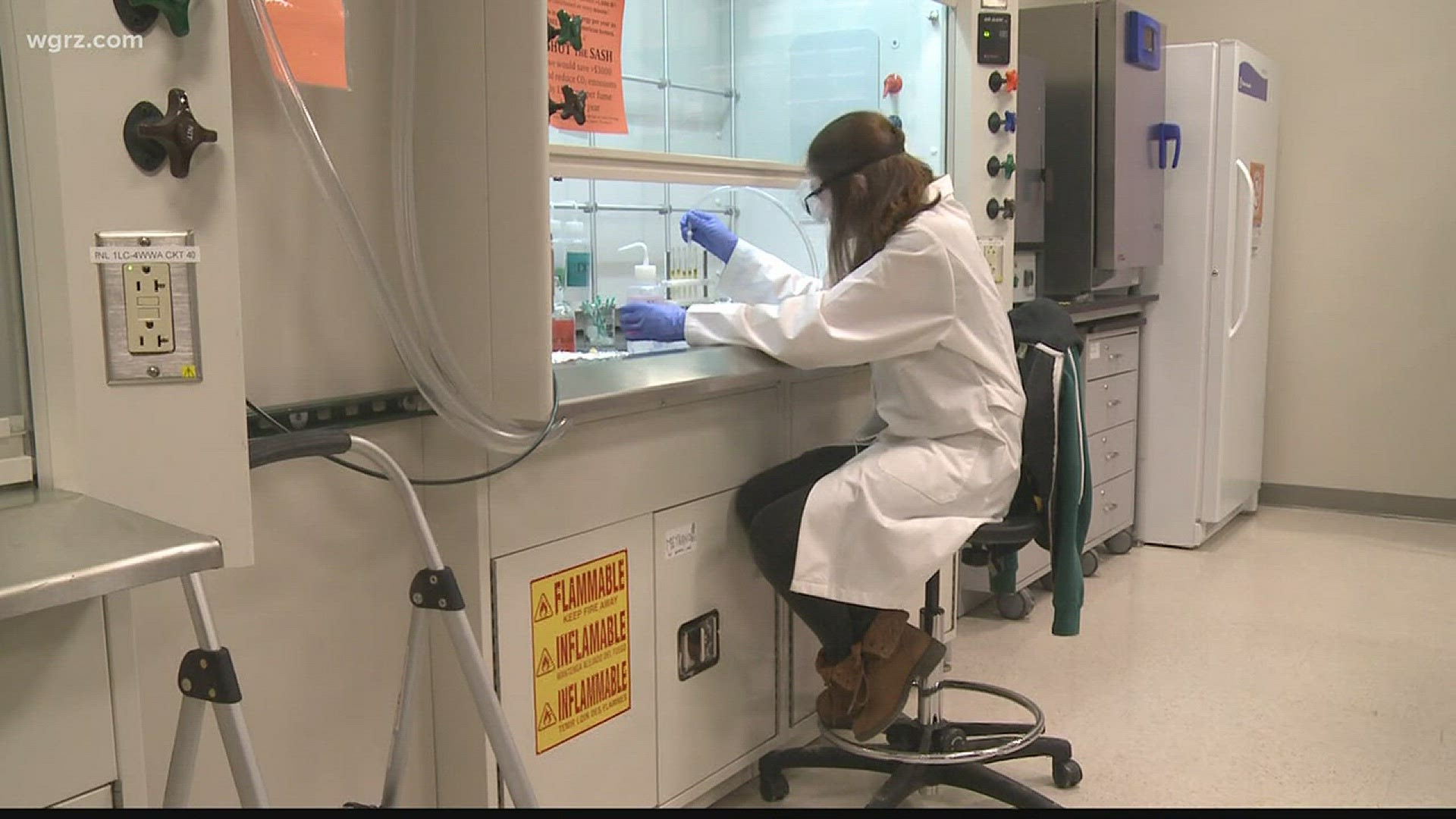Lake Effect snow in Western New York is a seasonal fact of life.
Storms can dump massive amounts of snow on a given area as cold winds pick up moisture over the warmer lake.
University at Buffalo Assistant Professor, Elizabeth Thomas, is leading a study examining past precipitation history in an effort to help predict snowfall.
"We look to previous warm periods in the past, that can serve as analogs for today, and potentially for the future. And so, if we can understand how lake effect snowfall behaved during these previous warm times, we can do a better job of predicting future snowfall.," she says.

To do that, the research team collects sediment from local ponds and bogs. Of particular interest is ancient leaf wax, extracted from the mud and analyzed in the lab. The waxes have hydrocarbons that provide important clues to past precipitation levels.
"The Hydrogens in those waxes come from the water that those plants suck up from the soil, and so the hydrogen isotopes reflect the Hydrogen isotopes of rain and snowfall. The Gas Chromatograph separates out the individual leaf waxes, and then you convert it to Hydrogen gas, and then the isotopes of the Hydrogen gas get measured on this Mass Spectrometer," Thomas says.
The team then compares the isotopes extracted from the five to 10 thousand year old leaf samples to more recent snowfall samples. This allows the researchers to fill in past climate history as well as looking into the future.
"We know from other records that other Paleoclimatoligists have generated, that that time period was relatively warm, it's actually still a little bit cooler than we are today, because humans have been warming the surface of the Earth so much, but it's definitely warmer than the Pre-Industrial Era."
This knowledge will be important as our region moves forward in an era of climate change.
"Our goal is to be able to understand how lake effect snowfall behaves in a relatively warm climate, with the ultimate goal to work with climate modelers to do a better job of predicting the future, and also to open up conversations with decision makers in our community."
The UB team is already working with citizen scientists throughout the area, but needs more volunteers.
"Our current study sites are not right in the heart of any of the lake effect snow belts, and so we'd like to find a natural lake or bog that we could collect sediment cores from to look at how lake effect snow behaved right in the heart of the lake effect band."

